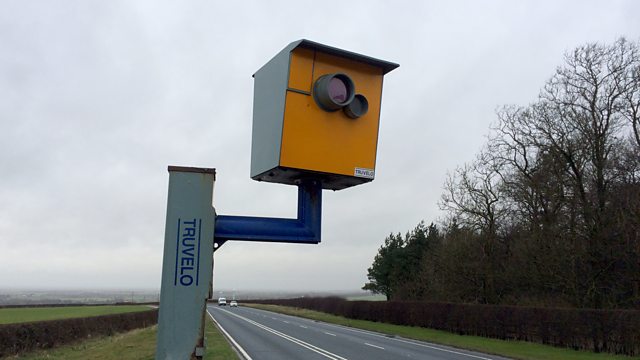Speed cameras at 30; Meter tampering; Protected payphones
Fixed speed cameras were first brought into use 30 years ago on UK roads, with the first fines a year later. So have they worked in reducing deaths and serious injury?
It was thirty years ago this year that the first fixed speed cameras were brought into use on UK roads. They immediately resulted in large numbers of fines and as a result, became quickly unpopular. Three decades later and the number of speed cameras have grown to around 7,000. We talk to a transport expert who was part of the original team to recommend the Government introduced the cameras. We ask - have they worked in improving safety, or have they simply becomes 'cash cows'....ways of making money.
Also, as money gets tight, there's a real concern that people are being enticed into tampering with their gas or electricity meters to fraudulently save on bills. Not only is the practice illegal, it's hugely dangerous. Now a campaign has been launched to highlight the risks in the face of a growing number of fraudsters offering to tamper with meters...for a price.
New rules have come into force preventing the removal of public telephone boxes that are still needed by local communities. They've come from the regulator, OFCOM, and BT must continue to provide some public payphones even if they are barely used. We report on why some public payphones remain valuable to a local community.
And - buy now...pay later. The idea has taken off, big-time,. A third of people in their 20s use it. But with the economy under pressure and regulation looming, might buy-now-pay later companies start to feel the squeeze? The biggest, Klarna, has laid off a tenth of its total workforce. We discuss the popularity of buy-now-pay-later amongst the people who use it, and how the companies are preparing themselves for the continuing financial squeeze.
PRESENTER: WINIFRED ROBINSON
PRODUCER: CRAIG HENDERSON



